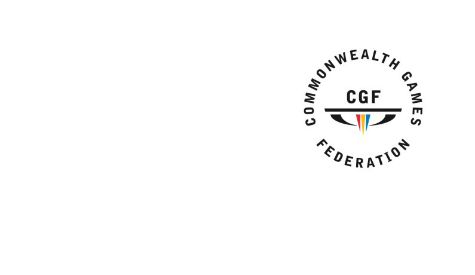 To mark UN International Youth Day, the Commonwealth Games Federation (CGF), working with
To mark UN International Youth Day, the Commonwealth Games Federation (CGF), working with
the Commonwealth Secretariat and the United Nations Children’s Fund (UNICEF), have today
(Wednesday 12 August) announced a dynamic and inclusive programme of athlete and public
engagement activities at the upcoming Samoa 2015 Commonwealth Youth Games to provide
support and inspiration to tackle the issues facing the next generation of global sporting citizens.
Taking place on the island nation of Samoa from 5-11 September 2015, the Commonwealth
Youth Games will bring together up to 1000 young athletes aged 14-18, who will represent their
country and compete for 107 Gold medals in 9 sports over 5 days.
A formative first taste of an international multi-sport environment for many, the new initiatives
announced today will help fulfil the Games’ core ambition to celebrate high-performance sporting
competition, personal development and new Commonwealth friendships made on the level
playing field of sport.
Welcoming the initiatives, CGF Chief Executive David Grevemberg said: “We’re thrilled to be
joining forces with the Commonwealth Secretariat and UNICEF to enable innovative
projects at this year’s Commonwealth Youth Games which will engage, inspire and
support our young Commonwealth athletes and young Pacific Island hosts. In line with
our strategic ambitions, we hope the programme will have a lasting impact, recognising
our young Commonwealth citizens as essential to achieving sustainable human
development.”
The Commonwealth Secretariat, working with the CGF and the local Games Organising
Committee in Samoa, will deliver a series of fun and interactive workshops to raise awareness
among young athletes of the potential to use sport to contribute to Commonwealth development.
The workshops will take place on rotation each day throughout the Games, enabling athletes and
officials to attend on an optional basis, and will be delivered by representatives from the
Commonwealth Youth Sport for Development and Peace (CYDSP) working group, a network of
young sport and development leaders from across the Commonwealth.
Oliver Dudfield, Head of Sport for Development and Peace at the Commonwealth Secretariat
said: “The opportunity for participants at the Games to learn more about how sport can be
used as a tool for development is another example of the important role the Games
movement can play in promoting the Commonwealth and our shared values.”
Running alongside the workshops, and building on one of the regional legacy programmes
enabled by the CGF and UNICEF’s groundbreaking fundraising partnership at the Glasgow 2014
Commonwealth Games, Just Play fan zones will also be set up at Games-Time to enable young
locals, visitors, athletes and officials to participate in interactive games and activities.
Active in nine Pacific Island countries, Just Play uses sport to reduce vulnerability and address
social issues affecting young people in the region. The Just Play programme promotes physical
activity for children and young people through football and other sport-related activities, while
creatively and inclusively addressing endemic issues such as non-communicable diseases, poor
nutrition, gender equality, stigma and discrimination towards children with disabilities.
UNICEF Pacific representative, Dr. Karen Allen said: “Sport is a powerful development tool to
engage children and young people across the world. Within the Pacific, since the
programme’s inception in 2009, Just Play has attracted more than 200,000 girls and boys
to engage in physical activity and learn healthy lifestyle habits and self-confidence. The
programme also encourages gender equality, promotes social inclusion and reduces
anxiety after natural disasters.
For the Commonwealth Youth Games, UNICEF and Just Play have partnered with CGF to
showcase how sport in the Pacific is helping make a positive impact on children’s lives.”
As a further legacy, both projects will collaborate closely on training and implementation,
supporting networking and knowledge-sharing between CYSDP working group representatives
and regional UNICEF Pacific volunteers.
- ENDS -
